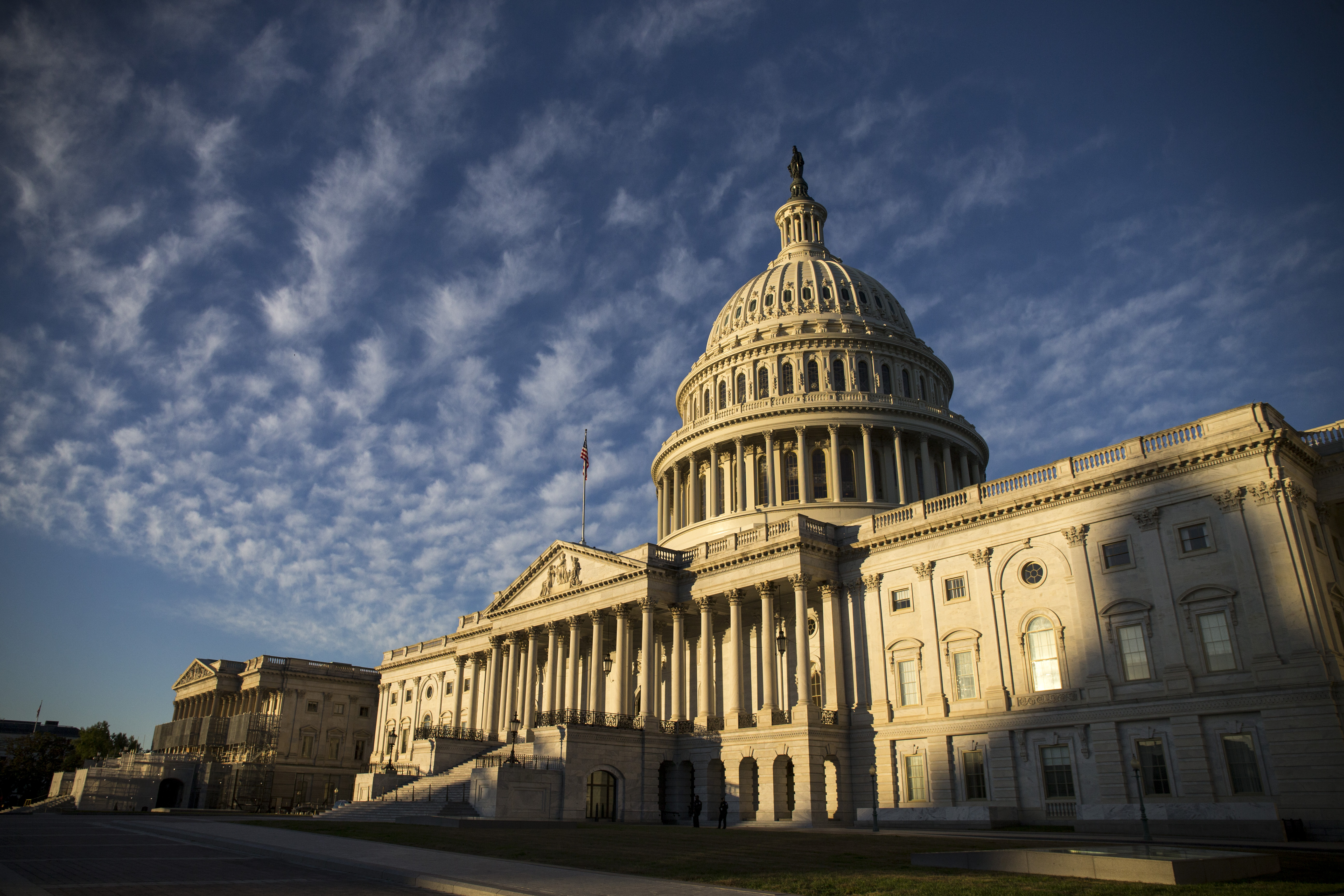Criminal justice reform gets a strong bipartisan push in the Senate


A free daily email with the biggest news stories of the day – and the best features from TheWeek.com
You are now subscribed
Your newsletter sign-up was successful
The Senate voted 82-12 Monday to close debate on the First Step Act and bring the legislation to a final vote in the upper chamber as soon as Tuesday. The House has already passed a different version of the bill and would have to vote again on this version before it could be sent President Trump, who has said he will sign it.
The First Step Act's main concern is sentencing reform, giving judges greater discretion in sentencing for some future convictions. It also makes retroactive a prior sentencing reform law and slightly expands the circumstances under which inmates can earn earlier transfer to pre-release custody. If passed, First Step will only apply to the federal prison system, which means about nine in 10 of America's 2.1 million inmates won't be affected.
Support for ending debate does not necessarily translate to support for the bill itself. Most Democrats are expected to vote yes, though some have criticized First Step for being too cautious a reform.
The Week
Escape your echo chamber. Get the facts behind the news, plus analysis from multiple perspectives.

Sign up for The Week's Free Newsletters
From our morning news briefing to a weekly Good News Newsletter, get the best of The Week delivered directly to your inbox.
From our morning news briefing to a weekly Good News Newsletter, get the best of The Week delivered directly to your inbox.
Some Republicans, meanwhile, have argued it is too lenient. Sen. Tom Cotton (R-Ark.) has penned a series of op-eds opposing the legislation and, with Sen. John Kennedy (R-La.), will introduce amendments limiting the convictions eligible for early release and requiring public reports about those released. First Step supporters believe the amendments are a "poison pill" intended to divide the bipartisan coalition backing the bill.
"The amendments [Cotton] will propose tomorrow, the senator from Arkansas, have been opposed by groups across the board, left and right, conservative, progressive, Republican, Democrat — they all oppose his amendments," said Sen. Dick Durbin (D-Ill.). "If he goes with the amendments we've seen, we're going to have to do our best to oppose him."
A free daily email with the biggest news stories of the day – and the best features from TheWeek.com
Bonnie Kristian was a deputy editor and acting editor-in-chief of TheWeek.com. She is a columnist at Christianity Today and author of Untrustworthy: The Knowledge Crisis Breaking Our Brains, Polluting Our Politics, and Corrupting Christian Community (forthcoming 2022) and A Flexible Faith: Rethinking What It Means to Follow Jesus Today (2018). Her writing has also appeared at Time Magazine, CNN, USA Today, Newsweek, the Los Angeles Times, and The American Conservative, among other outlets.
-
 Political cartoons for February 22
Political cartoons for February 22Cartoons Sunday’s political cartoons include Black history month, bloodsuckers, and more
-
 The mystery of flight MH370
The mystery of flight MH370The Explainer In 2014, the passenger plane vanished without trace. Twelve years on, a new operation is under way to find the wreckage of the doomed airliner
-
 5 royally funny cartoons about the former prince Andrew’s arrest
5 royally funny cartoons about the former prince Andrew’s arrestCartoons Artists take on falling from grace, kingly manners, and more
-
 ABC News to pay $15M in Trump defamation suit
ABC News to pay $15M in Trump defamation suitSpeed Read The lawsuit stemmed from George Stephanopoulos' on-air assertion that Trump was found liable for raping writer E. Jean Carroll
-
 Judge blocks Louisiana 10 Commandments law
Judge blocks Louisiana 10 Commandments lawSpeed Read U.S. District Judge John deGravelles ruled that a law ordering schools to display the Ten Commandments in classrooms was unconstitutional
-
 ATF finalizes rule to close 'gun show loophole'
ATF finalizes rule to close 'gun show loophole'Speed Read Biden moves to expand background checks for gun buyers
-
 Hong Kong passes tough new security law
Hong Kong passes tough new security lawSpeed Read It will allow the government to further suppress all forms of dissent
-
 France enshrines abortion rights in constitution
France enshrines abortion rights in constitutionspeed read It became the first country to make abortion a constitutional right
-
 Texas executes man despite contested evidence
Texas executes man despite contested evidenceSpeed Read Texas rejected calls for a rehearing of Ivan Cantu's case amid recanted testimony and allegations of suppressed exculpatory evidence
-
 Supreme Court wary of state social media regulations
Supreme Court wary of state social media regulationsSpeed Read A majority of justices appeared skeptical that Texas and Florida were lawfully protecting the free speech rights of users
-
 Greece legalizes same-sex marriage
Greece legalizes same-sex marriageSpeed Read Greece becomes the first Orthodox Christian country to enshrine marriage equality in law
